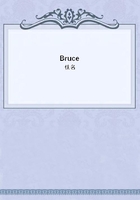
第25章 When Eyes Were No Use(3)
"This," commented Sergeant Mahan, "is one of the times I was talking about this morning--when eyes are no use. This is sure the country for fogs, in war-time. The cockneys tell me the London fogs aren't a patch on 'em."The "Here-We-Comes" were encamped, for the while, at the edge of a sector from whence all military importance had recently been removed by a convulsive twist of a hundred-mile battle-front. In this dull hole-in-a-corner the new-arrived rivets were in process of welding into the more veteran structure of the mixed regiment.
Not a quarter-mile away--across No Man's Land and athwart two barriers of barbed wire--lay a series of German trenches. Now, in all probability, and from all outward signs, the occupants of this boche position consisted only of a regiment or two which had been so badly cut up, in a foiled drive, as to need a month of non-exciting routine before going back into more perilous service.
Yet the commander of the division to which the "Here-We-Comes"were attached did not trust to probabilities nor to outward signs. He had been at the front long enough to realize that the only thing likely to happen was the thing which seemed unlikeliest. And he felt a morbid curiosity to learn more about the personnel of those dormant German trenches.
Wherefore he had sent an order that a handful of the "Here-We-Comes" go forth into No Man's Land, on the first favorable night, and try to pick up a boche prisoner or two for questioning-purposes. A scouring of the doubly wired area between the hostile lines might readily harvest some solitary sentinel or some other man on special duty, or even the occupants of a listening-post.
And the division commander earnestly desired to question such prisoner or prisoners. The fog furnished an ideal night for such an expedition.
Thus it was that a very young lieutenant and Sergeant Mahan and ten privates--the lanky Missourian among them--were detailed for the prisoner-seeking job. At eleven o'clock, they crept over the top, single file.
It was a night wherein a hundred searchlights and a million star--flares would not have made more impression on the density of the fog than would the striking of a safety match. Yet the twelve reconnoiterers were instructed to proceed in the cautious manner customary to such nocturnal expeditions into No Man's Land. They moved forward at the lieutenant's order, tiptoeing abreast, some twenty feet apart from one another, and advancing in three-foot strides. At every thirty steps the entire line was required to halt and to reestablish contact--in other words, to "dress" on the l ieutenant, who was at the extreme right.
This maneuver was more time-wasting and less simple than its recital would imply. For in the dark, unaccustomed legs are liable to miscalculation in the matter of length of stride, even when shell-holes and other inequalities of ground do not complicate the calculations still further. And it is hard to maintain a perfectly straight line when moving forward through choking fog and over scores of obstacles.
The halts for realignment consumed much time and caused no little confusion. Nervousness began to encompass the Missouri recruit.
He was as brave as the next man. But there is something creepy about walking with measured tread through an invisible space, with no sound but the stealthy pad-pad-pad of equally hesitant footsteps twenty feet away on either side. The Missourian was grateful for the intervals that brought the men into mutual contact, as the eerie march continued.
The first line of barbed wire was cut and passed. Then followed an endless groping progress across No Man's Land, and several delays, as one man or another had trouble in finding contact with his neighbor.
At last the party came to the German wires. The lieutenant had drawn on a rubber glove. In his gloved hand he grasped a strip of steel which he held in front of him, like a wand, fanning the air with it.
As he came to the entanglement, he probed the barbed wire carefully with his wand, watching for an ensuing spark. For the Germans more than once had been known to electrify their wires, with fatal results to luckless prowlers.
These wires, to-night, were not charged. And, with pliers, the lieutenant and Mahan started to cut a passageway through them.
As the very first strand parted under his pressure, Mahan laid one hand warningly on the lieutenant's sleeve, and then passed the same prearranged warning down the line to the left.
Silence--moveless, tense, sharply listening silence--followed his motion. Then the rest of the party heard the sound which Mahan's keener ears had caught a moment earlier--the thud of many marching feet. Here was no furtive creeping, as when the twelve Yankees had moved along. Rather was it the rhythmic beat of at least a hundred pairs of shapeless army boots--perhaps of more.
The unseen marchers were moving wordlessly, but with no effort at muffling the even tread of their multiple feet.
"They're coming this way!" breathed Sergeant Mahan almost without sound, his lips close to the excited young lieutenant's ear. "And they're not fifty paces off. That means they're boches. So near the German wire, our men would either be crawling or else charging, not marching! It's a company--maybe a battalion--coming back from a reconnaissance, and making for a gap in their own wire some where near here. If we lay low there's an off chance they may pass us by."Without awaiting the lieutenant's order, Mahan passed along the signal for every man to drop to earth and lie there. He all but forced the eagerly gesticulating lieutenant to the ground.